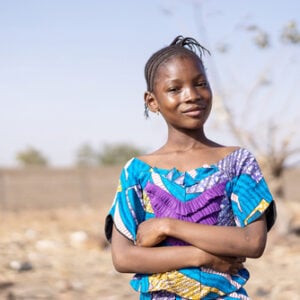In mid-2025, the UN Sanitation and Hygiene Fund (SHF) commissioned an independent Mid-Term Review (MTR) to assess its progress, relevance, and impact, with the goal of guiding its next phase of strategic development. This review was more than an evaluation—it was a learning opportunity, intended to refine SHF’s role in the evolving development space and inform how it can expand its influence going forward.
The MTR concluded that SHF’s catalytic market-building model is both relevant and necessary. In a global environment where traditional aid is shrinking and the need for sustainable development solutions is growing, SHF’s positioning at the intersection of public systems and private sector delivery offers a promising path. The review applauded SHF’s structured yet adaptive approach that supports evidence-based, country-led planning and reinforces national leadership and accountability.
The review also highlighted early signs of systems-level change, particularly in countries like Uganda, Kenya, and Nigeria. SHF has moved beyond small-scale pilots, working with national stakeholders to embed market-based approaches to sanitation and menstrual health within public policies, regulatory frameworks, and financing systems. This has helped influence policy shifts, foster enterprise ecosystems, and mobilize domestic resources, thus laying the foundation for long-term impact.
SHF, supported by donors including Switzerland, the Netherlands, and the Gates Foundation, is expanding its efforts across East and West Africa and into South Africa and Asia. Its goal is to catalyze change by unlocking innovative finance, supporting public sector reform, and strengthening local markets—particularly in underfunded areas like non-sewered sanitation and menstrual health. Tools such as the Sanitation Economy Maturity Assessment Tool (SANEMAT) and the Menstrual Health Market Maturity Assessment Tool (MH-MMAT) are helping countries assess market readiness and define context-specific scaling strategies.
The independent assessment, based on the OECD-DAC evaluation framework and fieldwork including stakeholder interviews and site visits in Uganda, confirmed SHF’s increasing relevance and effectiveness. It praised SHF’s role in expanding service access and supporting resilient local ecosystems capable of sustaining and scaling interventions over time.
In addition to affirming SHF’s approach, the MTR provided targeted recommendations. It called for clearer communication of SHF’s value proposition, stronger articulation of its collaborative model, and a strategic balance between broad scaling and focused depth. The review also encouraged SHF to continue strengthening its evidence base and learning systems while remaining responsive to country priorities.
SHF is already integrating these insights into its upcoming 2026–2030 strategy. By refining its partnership model, enhancing impact communications, and deepening its evidence-driven work, SHF is reinforcing its commitment to country-led, equitable, and lasting transformation.
Ultimately, the MTR affirmed SHF’s evolution from pilot initiatives to a system-level influencer, highlighting its role as a connector, enabler, and strategic partner. As the SDG deadline approaches, SHF will continue advancing initiatives such as Next Generation Sanitation and Capital M, working with governments and partners to shape inclusive, sustainable sanitation and menstrual health markets across low- and middle-income countries.






